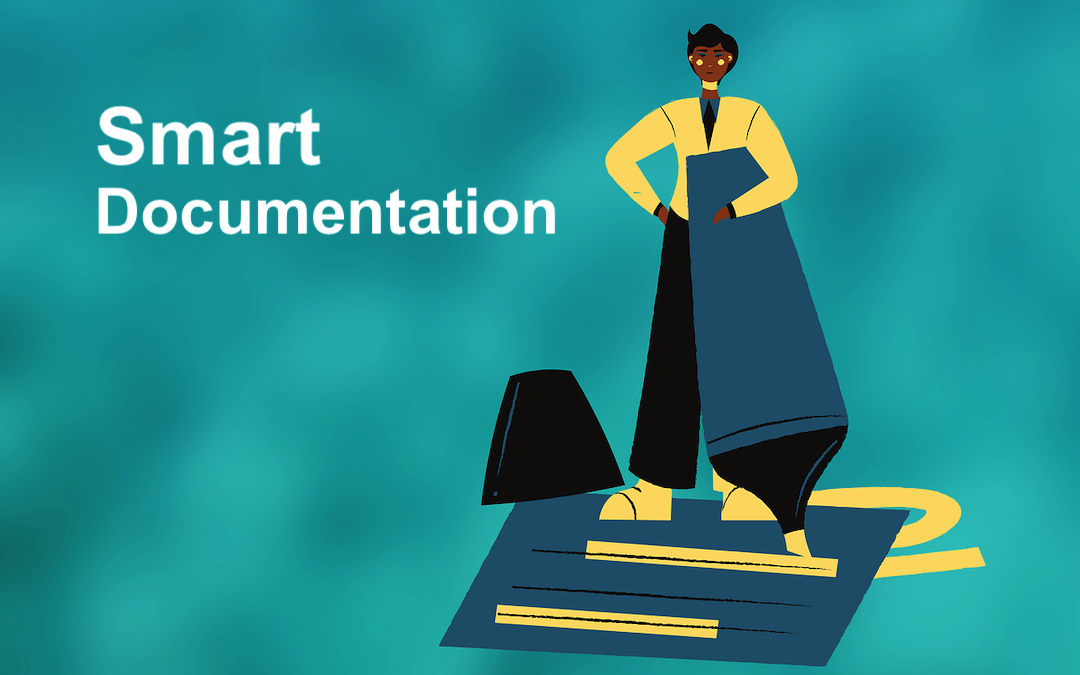
In today’s fast-paced digital landscape, delivering an exceptional user experience (UX) is no longer optional—it’s a necessity. But while much attention is often paid to interface design and functionality, one crucial yet overlooked element is documentation.
Smarter documentation forms the backbone of an intuitive and user-friendly experience, empowering users to navigate products or services with confidence. In this article, we delve into why user experience begins with smarter documentation and how businesses can optimize this essential component.
The Role of Documentation in User Experience
Documentation is often perceived as a supplementary resource, but it plays a foundational role in ensuring users can interact effectively with products or services. High-quality documentation offers:
- Clarity: Clear instructions help users complete tasks without confusion.
- Support: Comprehensive guides reduce frustration by addressing common issues.
- Efficiency: Well-structured documentation saves time for both users and support teams.
- Accessibility: Inclusive documentation ensures that everyone, regardless of ability, can benefit equally.
When documentation is crafted with user needs in mind, it bridges the gap between technical complexity and practical usability.
Characteristics of Smarter Documentation
So, what sets smarter documentation apart from the rest? Here are the key characteristics:
1. User-Centric Design
Smarter documentation begins with an understanding of the end user. This involves analyzing usage data to identify common pain points and tailoring content accordingly.
Example:
If analytics reveal that users frequently search for troubleshooting tips, prioritizing an FAQ section can make documentation more effective.
2. Readability and Simplicity
Documentation should be easy to read and understand, even for non-technical users. Use:
- Clear headings and subheadings.
- Bullet points for quick reference.
- Plain language to explain technical concepts.
3. Accessibility
Inclusive design principles must extend to documentation. Features like screen reader compatibility, alternative text for images, and high-contrast formatting ensure usability for individuals with disabilities. Consider conducting an accessibility audit service to identify and address gaps in inclusivity.
4. Automation for Efficiency
Automation tools can streamline the creation and maintenance of documentation. Features like content version control, auto-generated table of contents, and real-time translation tools reduce manual effort and enhance consistency.
5. Visual Aids
Adding visuals such as diagrams, screenshots, and videos can significantly improve comprehension. These elements cater to visual learners and make complex topics more digestible.
Steps to Create Smarter Documentation
Creating smarter documentation requires a strategic approach. Here’s a step-by-step guide:
1. Understand User Needs
Leverage surveys, usability testing, and usage data to gain insights into what users struggle with the most. The feedback should guide the topics and structure of your documentation.
2. Plan the Structure
Organize content logically by grouping related topics. Use a hierarchical structure with clear headings and subheadings, making it easier for users to navigate.
3. Optimize for Readability
Follow these best practices:
- Keep sentences concise.
- Use consistent terminology.
- Highlight key points using bold or italic text.
4. Ensure Accessibility
Conduct a website audit to ensure your documentation meets standards like WCAG (Web Content Accessibility Guidelines). Simple improvements like keyboard navigation and descriptive links can make a significant difference.
5. Integrate Automation
Adopt tools that simplify the documentation process. For example:
- Markdown editors for consistent formatting.
- AI-driven platforms for automated translation.
- CMS systems that update content dynamically.
6. Test and Iterate
Continuously test your documentation with real users. Gather feedback, analyze metrics like bounce rates and time spent on pages, and make data-driven improvements.
Benefits of Smarter Documentation for UX
1. Reduced Support Costs
Comprehensive and easy-to-understand documentation minimizes the need for customer support, saving time and resources.
2. Enhanced User Satisfaction
When users can quickly find answers to their questions, they are more likely to have a positive experience with your product or service.
3. Increased Retention
Good documentation builds trust and loyalty. Users are more likely to stick with products that make them feel empowered.
4. Improved Accessibility
Smarter documentation ensures that everyone, regardless of ability, can fully engage with your offerings. Conducting an accessibility audit can help ensure compliance and inclusivity.
External Resources to Enhance Documentation
- The Importance of Accessibility in UX Design
- Comprehensive Guide to Conducting an Accessibility Audit
- Top Automation Tools for Documentation in 2024
By utilizing such resources, you can stay updated on best practices and tools that support smarter documentation.
Conclusion
User experience is a multifaceted domain, but at its core lies the ability to deliver value with minimal friction. Smarter documentation is an integral part of this equation, bridging the gap between complex systems and end-user comprehension. By focusing on user-centric design, readability, accessibility, and automation, businesses can transform their documentation into a powerful tool for enhancing UX.
Start your journey toward smarter documentation today. Whether it’s by integrating automation tools, analyzing usage data, or conducting an audit, every step brings you closer to a more inclusive and user-friendly experience. Remember, great user experiences aren’t just about design—they start with the details that guide and support your users every day.
Share this post
Leave a comment
All comments are moderated. Spammy and bot submitted comments are deleted. Please submit the comments that are helpful to others, and we'll approve your comments. A comment that includes outbound link will only be approved if the content is relevant to the topic, and has some value to our readers.

Comments (0)
No comment